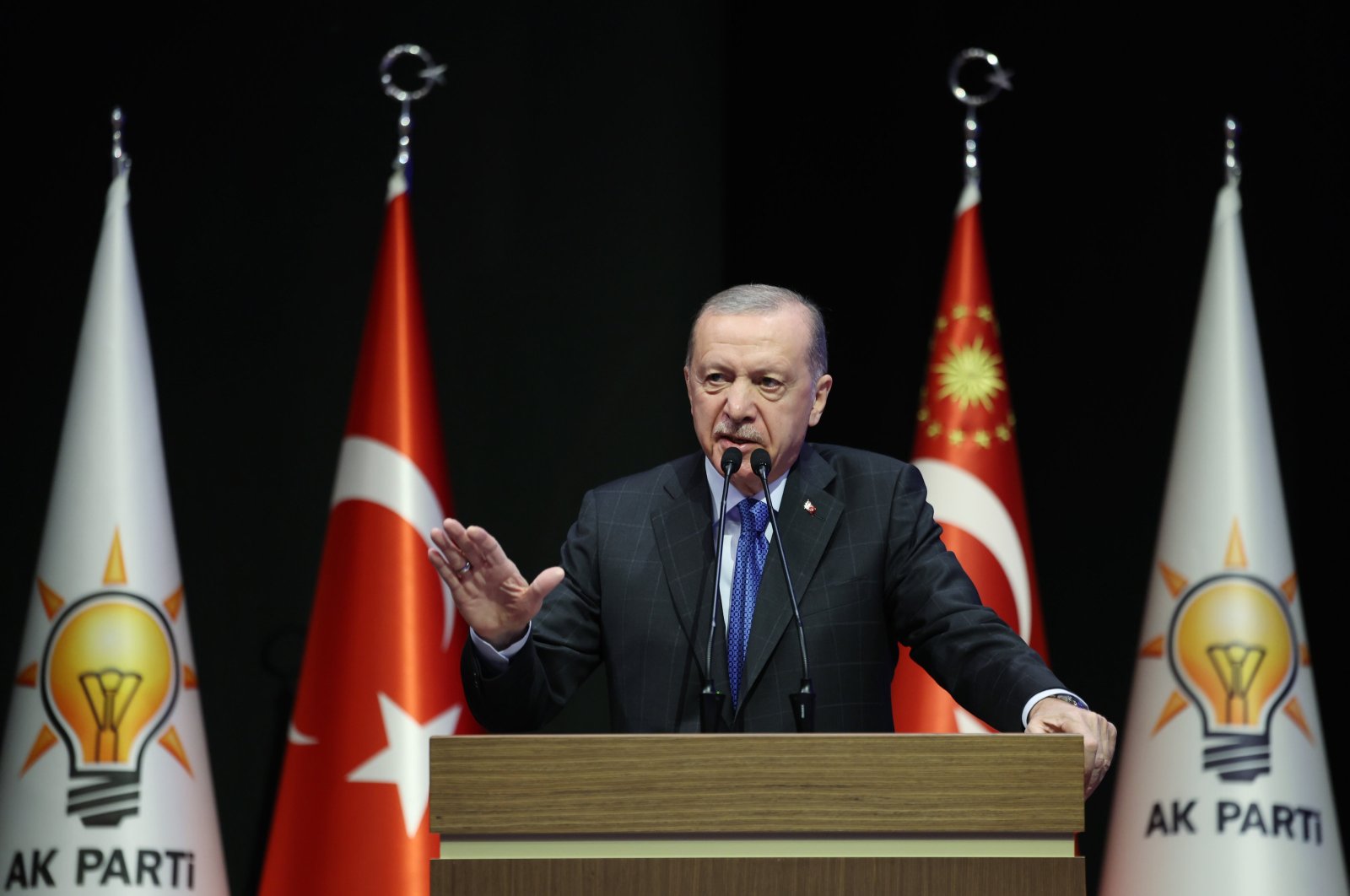
President Erdoğan on Tuesday said Fetullah Gülen, the U.S.-based leader of the FETÖ terrorist group, dishonorably died as a traitor and though he escaped prosecution in Türkiye, he would still face 'divine justice'
In his first comments since the death of Gülenist Terror Group (FETÖ) leader Fetullah Gülen on Sunday, President Recep Tayyip Erdoğan said he died a dishonorable death and would pay for his crimes in the afterlife. "He cannot escape from divine justice,” said Erdoğan in a speech in the capital Ankara on Tuesday.
Gülen's death made waves in Türkiye, where the common reaction was a sigh of relief and a call to vigilance against the group, which still remains active despite counterterrorism operations in the past years. This was apparent in remarks by the foreign minister and justice minister on Monday.
Erdoğan, who was the target of FETÖ before and during the July 15, 2016 coup attempt by the group's military infiltrators, remembered the group's victims, including his close friend Erol Olçok and his son Abdullah, who were killed by FETÖ's putschists, as he hit out at FETÖ.
"The end of the demons seeking 'himmet' was dishonorable death," Erdoğan told fellow members of his Justice and Development Party (AK Party). "Himmet" is the name FETÖ gave to donations to the group or cash obtained through extortion.
"These traitors managed to evade Turkish justice despite our efforts, and this was thanks to the aid of their superiors," he said, implying the United States' role in providing a haven for Gülen and other FETÖ members.
"They did not pay for their crimes, crimes against people whose rights they violated, against people they martyred. But they cannot escape from divine justice. Allah has a harsh sentence for them. Allah will hold them accountable for every evil deed they committed against the nation," he said.
Erdoğan pledged that the Turkish state would continue its fight until FETÖ is completely eradicated. "We will be after them whenever this pack of hyenas is in the world," he said.
The president said he hoped that the death of the "traitor-in-chief" would be solace for families of martyrs killed by putschists in 2016.
FETÖ, under the leadership of Fetullah Gülen, made its first open attempt to topple the government of then-Prime Minister Erdoğan in December 2013. On Dec. 17, 2013, prosecutors and police chiefs linked to FETÖ sought to topple the government in a far-reaching probe targeting ministers and people close to the government under corruption allegations. The probe, which led to arrest warrants, was followed by another operation on Dec. 25.
Yet, FETÖ would not stop there and, three years later, it tried its hand again to seize power, this time in a more brutal manner. It used its military infiltrators, who slaughtered 251 people resisting them across the country. Since then, Türkiye has stepped up its operations against the terrorist group's members, hunting them down across the country and the globe. Tens of thousands of people were detained or arrested both after the first attempt in 2013 and after 2016's foiled putsch bid.
The operations on Dec. 17-25, 2013, revealed that FETÖ-linked members of law enforcement and judiciary had secretly wiretapped people close to the government for three years and concocted evidence by forging audio recordings and documents to imprison them, with the ultimate purpose of implicating the prime minister in their sham cases.
